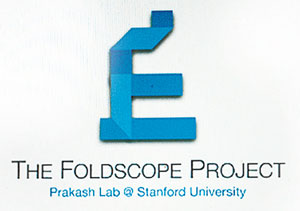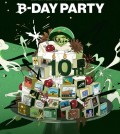- California Assembly OKs highest minimum wage in nation
- S. Korea unveils first graphic cigarette warnings
- US joins with South Korea, Japan in bid to deter North Korea
- LPGA golfer Chun In-gee finally back in action
- S. Korea won’t be top seed in final World Cup qualification round
- US men’s soccer misses 2nd straight Olympics
- US back on track in qualifying with 4-0 win over Guatemala
- High-intensity workout injuries spawn cottage industry
- CDC expands range of Zika mosquitoes into parts of Northeast
- Who knew? ‘The Walking Dead’ is helping families connect
Paper microscopes open new opportunities
 The initial application phase for the newly heralded Foldscope, an extremely cheap and portable paper microscope has come to an end, and those who made the cut will receive a package including this new toy to use for the coming months.
The initial application phase for the newly heralded Foldscope, an extremely cheap and portable paper microscope has come to an end, and those who made the cut will receive a package including this new toy to use for the coming months.
Highly durable, the Foldscope microscope is inspired by origami, with its main structure being completely constructed by folded paper. Developed by Manu Prakash, PhD, the dream was to make an ultra cheap and robust microscope that would allow such needed scientific tools in harsh and poor regions otherwise unsuited for expensive electronic microscopes.
With the application sample-sizing all kinds of individuals and indicated purposes, the beta phase application of Foldscope asked applicants who they are, where they are, and what their intentions are for this new tool, which has contradicted the typical trend of technologies increasing in complexity, fragility, and cost.
For once, science headlines are buzzing over a new product that is making technology simpler to access, and rightly so. The potential domain and reach for such a science tool opens endless possibilities, from elementary schools in impoverished nations to harsh arctic regions of the polar sheets. With the advent of Foldscope, the next big discovery no longer need come from exquisitely modern laboratories. This notion, along with the product that made it possible, is something we need to cheer for, to be excited for, to ask more for.
As disparities between accessible education and the sharing of science and the wealth and prosperity of nations remain disproportionate throughout our world, it is truly electrifying to see work being done to simplify technology so that it may be shared and its user-base expanded.
We can only hope that more of these kinds of inventions come to be in the near future, so that the monopoly on science can be ripped away from the educational elite, and so that science can have unlimited access to every mind and every place, no matter the difference.
 |
Alex Kim Troy High School 11th Grade |












kelly
November 27, 2017 at 12:58 PM
yes..I like the basic concepts behind Second Life but it seems incredibly outdated and when I played it was intensely non-intuitive / user friendly to an extent that made EVE look like a game for toddlers. thanks from
togel online